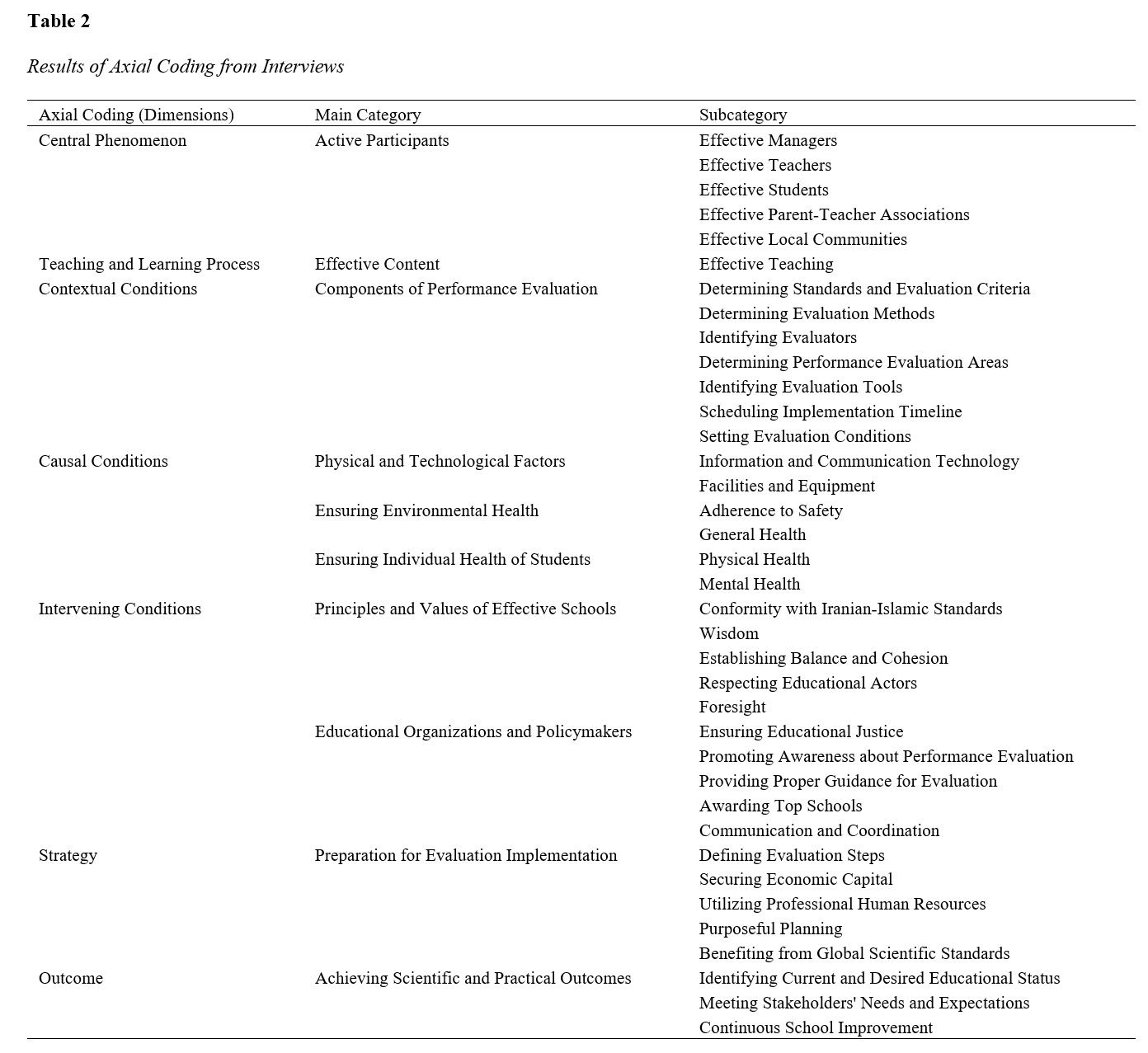Identifying Dimensions and Components of Functional Performance Evaluation in Effective Schools with a Grounded Theory Approach
Keywords:
Performance Evaluation, Effective Schools, Managers, Elementary LevelAbstract
Objective: The purpose of this research is to identify the dimensions and components of functional performance evaluation in effective schools using a grounded theory approach.
Methodology: This qualitative study utilized the snowball sampling method to gather opinions from 15 experts and specialists in the field of education in Tehran, as well as university professors.
Findings: The research results indicated that six central factors, ten main categories, and thirty-eight subcategories play a significant role in the performance evaluation model of effective elementary schools in Tehran. Additionally, the research's paradigmatic model consists of causal factors, including physical and technological factors, environmental health assurance, and individual health assurance for students; the central phenomenon includes active participants and the teaching-learning process; contextual conditions include components and elements of performance evaluation; intervening conditions include the principles and values of effective schools and educational organizations and policymakers; effective strategies for performance evaluation in effective schools include preparation for evaluation implementation; and the outcomes of performance evaluation in effective schools include achieving scientific and practical accomplishments.
Conclusion: Overall, this research has identified and analyzed these dimensions and components, providing a comprehensive model for evaluating the performance of effective schools in Tehran, which can help improve educational quality in this city.
Downloads

Downloads
Additional Files
Published
Issue
Section
License
Copyright (c) 2024 Roya Ramezani (Author); Nader Barzegar (Corresponding Author); Rezvan Hakimzadeh, Esfandiar Doshmanziari, Nahid Shafiee (Author)

This work is licensed under a Creative Commons Attribution-NonCommercial 4.0 International License.















